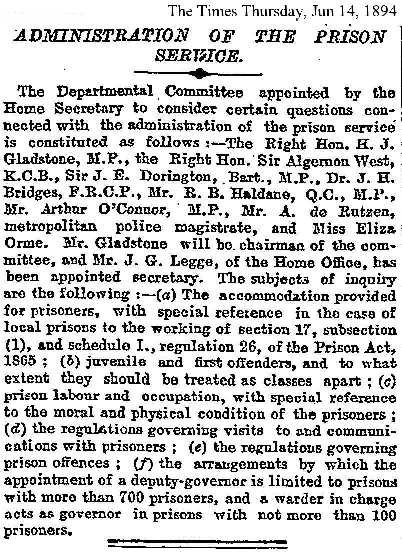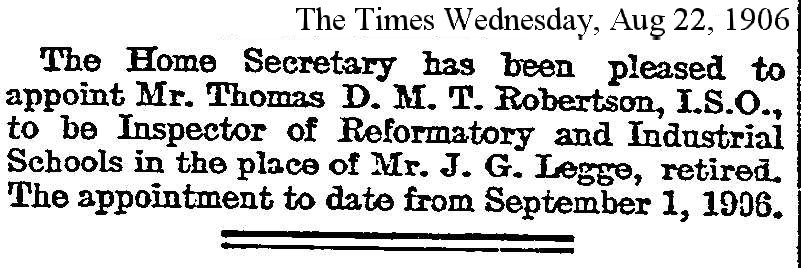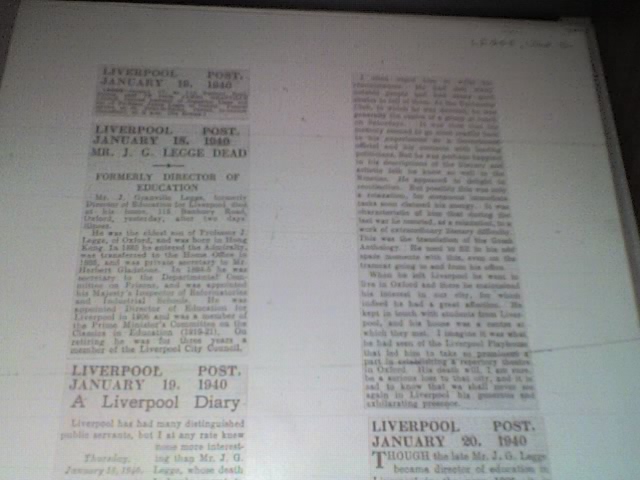|
|
Sefton R.U.F.C Our very first President |
|
|
Sefton R.U.F.C Our very first President |
17th August 1861 – 17th January 1940
|
|
|
'Reproduced courtesy of the Legge Family Collection.' |
Eldest Son of Professor James Legge and Hannah Mary Johnstone.
His father was the renowned missionary in Malacca & Hong Kong, translator, educationalist and
First Professor of Chinese at Oxford University - see *note below
Education
Family
|
|
|
Back row :
Cecilia Mereio, Mary Dominica 'Reproduced courtesy of the Legge Family Collection.' |
Professor Mary Dominica - born 1905 (Died in Oxford)
(Professor of Medieval French, Edinburgh University)
Beatrice Pompilia - born 1906
(Teacher at Royal Holloway College, in Ecclesfield Green)
All unmarried without issue
Harry Legge, musician, conductor, founder of the (Edinburgh) Rehearsal Orchestra
Born: 24 April, 1914, in LiverpoolDied: 19 July, 2000
HARRY Legge was one of the leading figures in conducting and orchestral playing in the United Kingdom. As founder and conductor of the Rehearsal Orchestra - initially known as the Edinburgh Rehearsal Orchestra - for 43 years he inspired, directed, trained, guided and coaxed the very highest standard of performance out of every level of player under him from the absolute beginner to the most experienced professional.
Henry James Granville Legge was born in Liverpool and educated at Winchester College, Queen's College Oxford and the Royal College of Music, where he studied under Loris Blofeld, William Reed and Gordon Jacob.
Career
London
 |
 |
 |
 |
[Letters to DS MacColl 1915-39
Muirhead Bone was the first official war artist appointed after the outbreak of war in 1914. His drawings were collected in a series called The Western Front from which certain images were selected for an edition de luxe entitled War Drawings, with each plate signed by the artist.
]
Liverpool
Master of the children’s drill, Liverpool Pageant 1907
Nursing Journal January 1915
At the annual meeting of the Garston and District Nursing Association, Liverpool, which receives a grant towards the work of its school nurse, Mr. J.G. Legge, Director of Education, said that there was a suggestion that too much was being done for children by the authorities, and that parents were being relieved, thus causing a loss of grit and fibre, which was the pride of our race. An immense work was being done by that Association, and the real point was in the way it was done. If relief was merely shovelled out it would weaken the moral fibre, but where relief was given under proper conditions it would strengthen rather than weaken.

Oxford 1925 – 1940 Banbury Road
Retirement
Other interests & achievements (selected)
London
Spent time in London with the ‘decadent’ arts set
i.e. Oscar Wilde, Aubrey Beardsley art editor of the Yellow Book quarterly periodical 1893-5 & others such as Augustus John.
WILDE, Oscar Autograph letter to Marian Willets ("Miss Willett"). Magdalen
College, Oxford, "Thursday", [1878].
Marian Fitzgerald Willets was stepdaughter of James Legge, the first
Professor of Chinese at Oxford. The letter to her was originally sent
with a photograph (no longer present) of a Burne-Jones watercolour
owned by Wilde called 'Hope'. Wilde comments: "In so many of Burne-
Jones' pictures we have merely the pagan worship of beauty: but in this
one I seem to see more humanity and sympathy than in all the others".
[Elliott Collection MS Wilde 1]
Liverpool
Oxford
'Repertory', the Playhouse’s magazine
OXFORD
PLAYHOUSE
Group of 5 lively numbers
of
‘Repertory’, the Playhouse’s magazine, edited
by Thea Holme (née Johnston, b. 1908, actress and writer),
with very interesting interviews with Yvonne Arnaud, Cathleen Nesbitt,
Lilian Braithwaite, Louise Hampton, Elena Miramova, Willy Clarkson the
wigmaker (“Vote for Clarkson ... always at the top of the
Poll”), C.B. Cochran (“My most memorable first
nights”, full of incidents back stage), and Theodore
Komisarjevsky, all with their signatures, among
the articles are two each on decor by John Counsell, and on Oscar Wilde
at Magdalen, Oxford, and London by J.G. Legge,
who knew him well,
another has excerpts from Queen Victoria’s diary, each number
16 sides, 11” x 8½”, including pictorial
covers and good advertisements, being the issues for 5th, 12th,19th
October and 9th November 1931, and 30th January 1933
Among the topics are ‘London’s Greatest
Blot’ by Yvonne Arnaud (the lack of a National Theatre, she
explains why the talk about films replacing the theatre is
“sheer nonsense”), censorship, smoking in the
theatre, the role of Repertory and of the amateur, and the
entertainment tax. Stringer Davis contributes a witty article on
“How to become an actor ... How to remain an
actor”. On Drama schools: “It is advisable to
forget most that you have learnt, but you are generally the better for
having learnt it”. Altogether a vivid evocation of the
enthusiasm of the period.
Publications
|
1914 |
Practical education in the elementary school |
|
|
1918 |
A study in German
history, life, literature and It is all a matter of
taste, of course, but personally I
don't |
|
|
1919 |
|
|
|
1919 |
|
|
|
The Millennium |
1927 |
|
|
The Rising Tide |
1929 |
An epic in education |
|
1935 |
A study of the French muse |
|
|
The Last of Mrs Proudie |
1938 |
A Barsetshire play |
* note: For further details of James Legge’s early life and the work and influence of his father, James Legge, in Scotland, Malacaa, China and Oxford, please see Norman Girardot, "The Victorian Translation of China" and/or Dr Lauren Pfister, "The Whole Duty of Man".

All Aliens RFC, Sefton RUFC photographs, programmes and memorabilia Copyright © 2012 Sefton RUFC